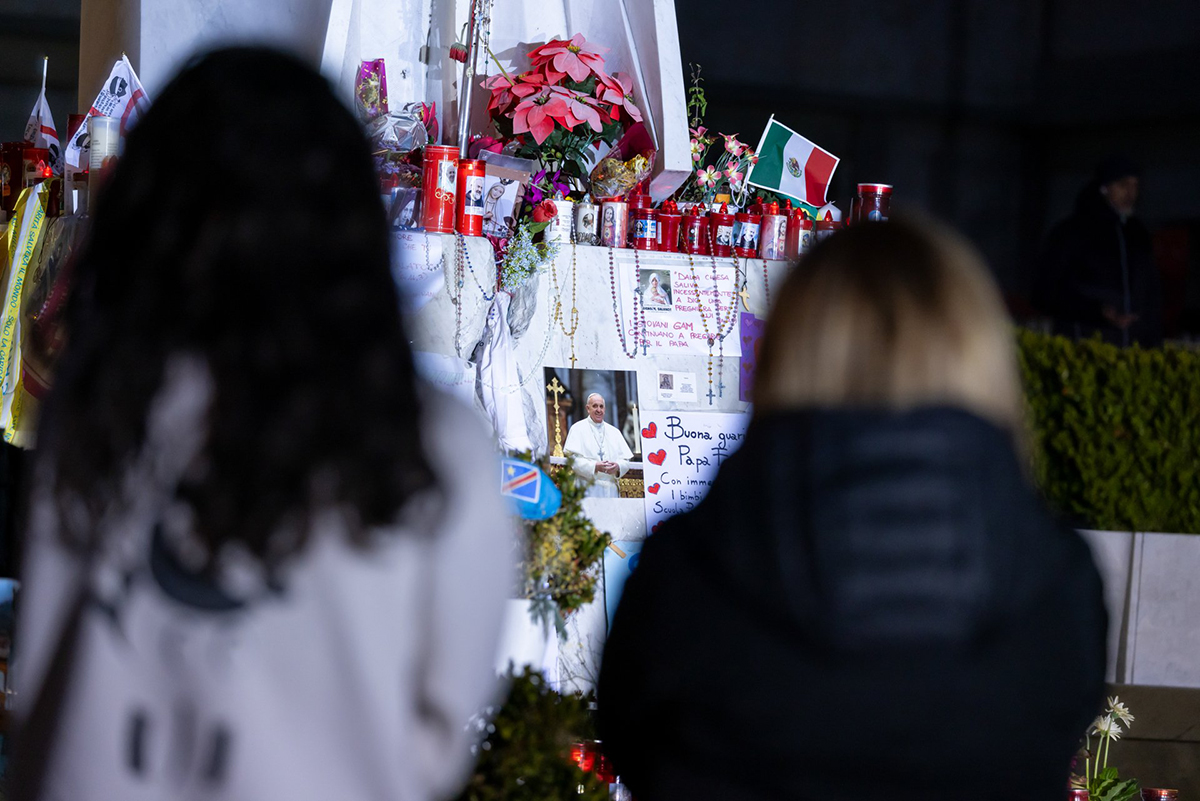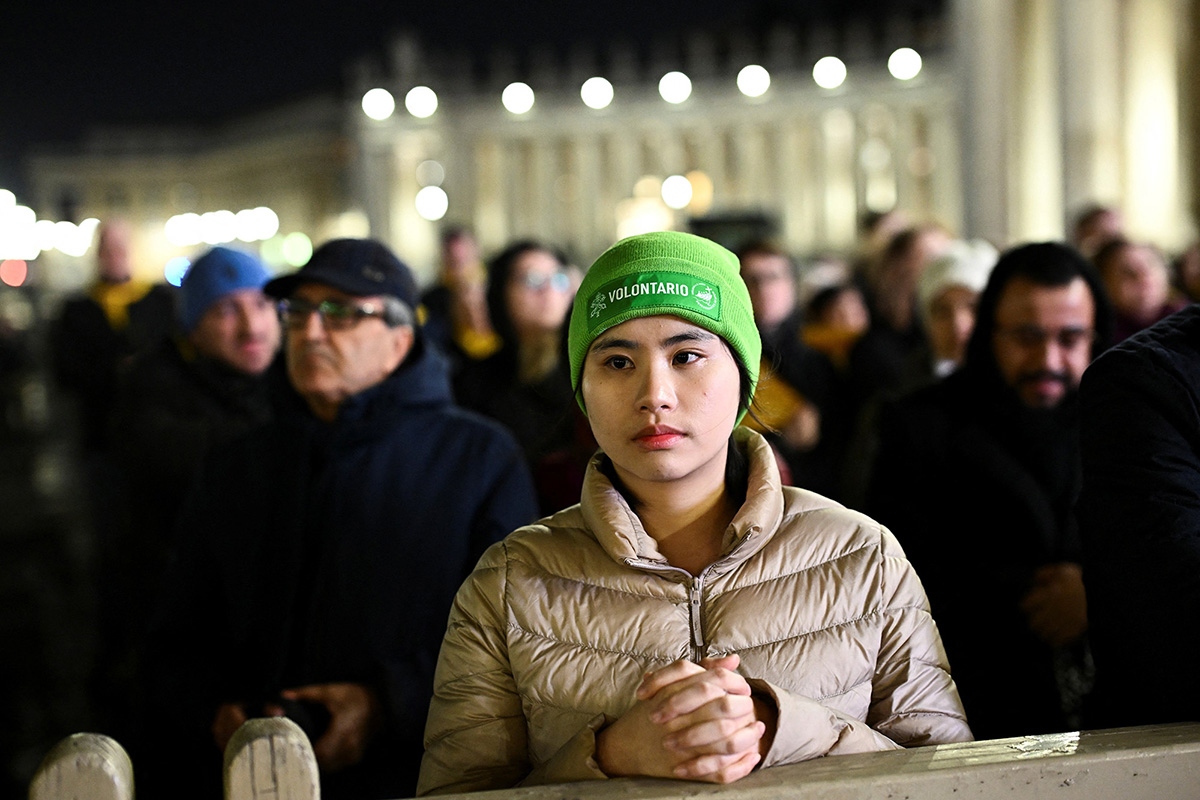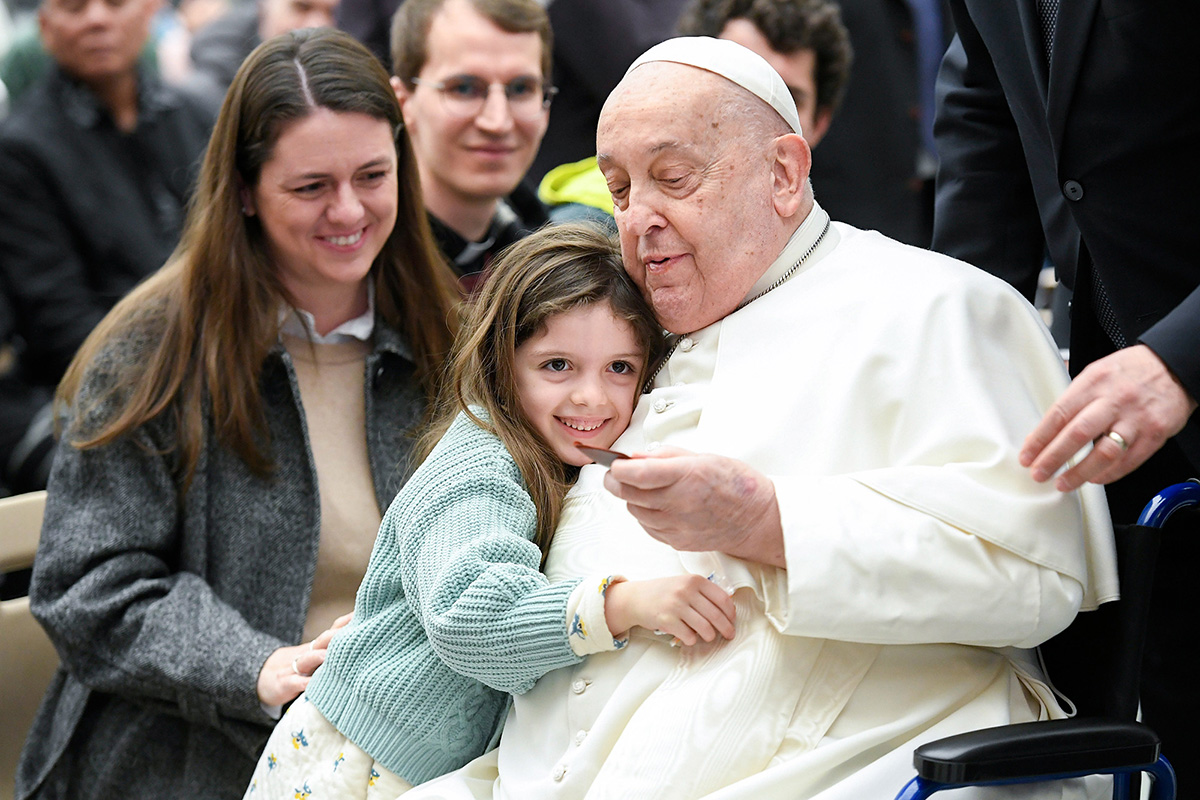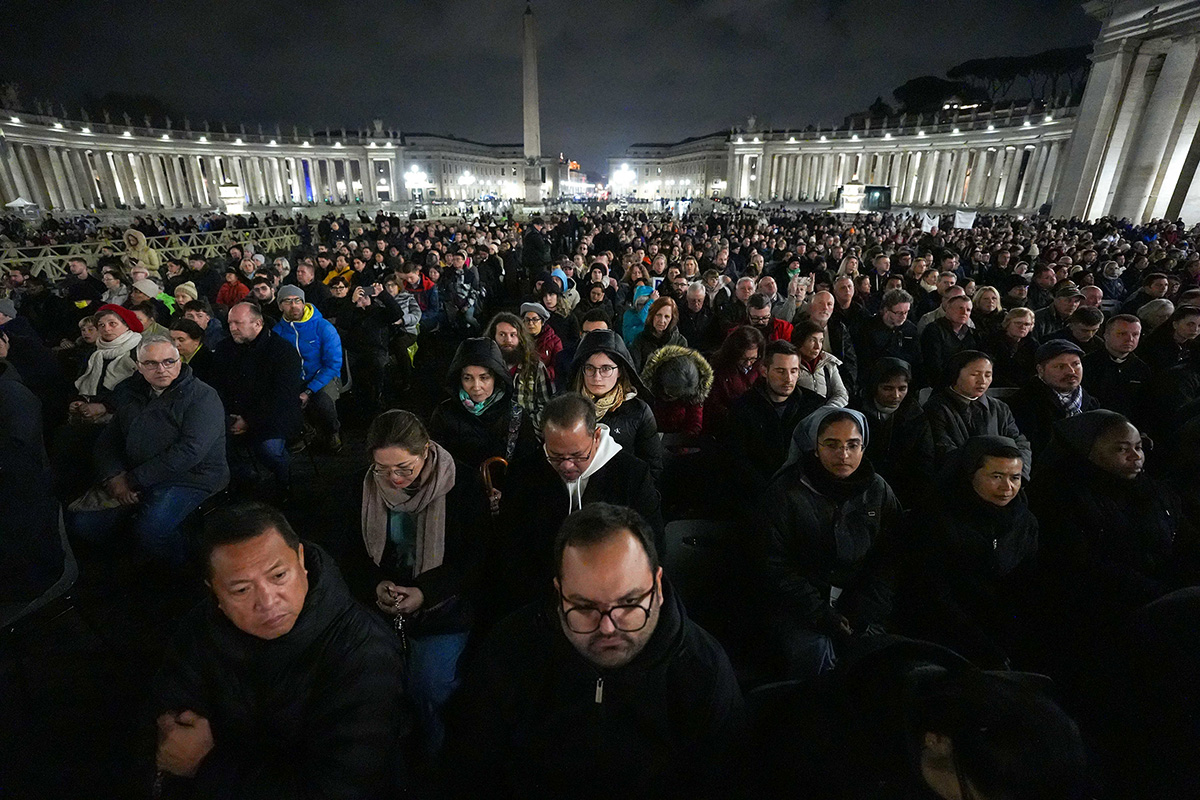Pope: Mission is common goal of synod and ecumenism
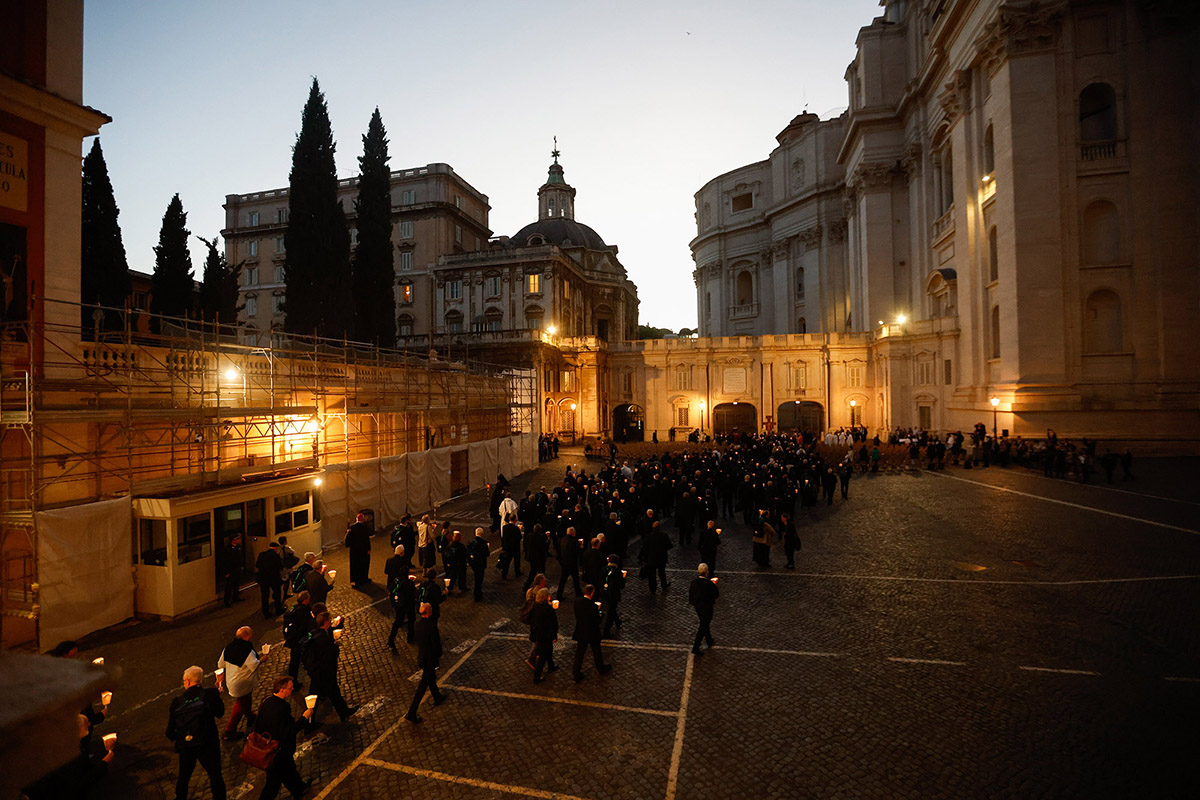
Halfway through the Synod of Bishops on Synodality, participants held a candlelight vigil to pray for Christian unity
VATICAN CITY — Halfway through the Synod of Bishops, Pope Francis and synod participants prayed that God would “remove the divisions between Christians” so that they could proclaim the Gospel together.
The pope presided over a candlelight vigil Oct. 11, the anniversary of the opening of the Second Vatican Council in 1962, and texts from council documents introduced the prayers of praise and the prayers of petition.
The synod participants at the prayer service included the 16 “fraternal delegates” representing Orthodox, Anglican and Protestant churches, as well as the Rome-based representatives of the Anglican, Methodist and Reformed churches to the Holy See and other Christian ministers and faithful in the city.
Pope Francis did not read the meditation he prepared for the service, although it was distributed and published on the Vatican website.
Halfway through the Synod of Bishops, Pope Francis wrote, participants wanted to “express our shame at the scandal of division among Christians, the scandal of our failure to bear common witness to the Lord Jesus.”
“This synod is an opportunity to do better, to overcome the walls that still exist between us,” the pope wrote.
The vigil took place in the Square of the Roman Protomartyrs, just south of St. Peter’s Basilica, which is the site where St. Peter and other Christians were martyred in the first century under the Emperor Nero.
The setting, the pope wrote, should “remind us that today, too, in many parts of the world, Christians of different traditions are laying down their lives together for their faith in Jesus Christ, embodying an ecumenism of blood.”
“Their witness speaks more powerfully than any words, because unity is born of the cross of the Lord,” Pope Francis said.
Noting the anniversary of Vatican II, he said the council “marked the official entry of the Catholic Church into the ecumenical movement,” which was begun by mainline Protestant churches out of a conviction that the lack of unity among Christians was harming their ability to preach the Gospel.
The goal of the work for Christian unity is the same as the goal for the synod on synodality, Pope Francis wrote. Both are focused on the mission Jesus gave to all His disciples to share the good news of salvation with everyone.
And, he said, in both ecumenical dialogue and the synodal process, “it is not so much a matter of creating something as it is of welcoming and making fruitful the gift we have already received” and sharing God-given gifts with each other for the benefit of all.
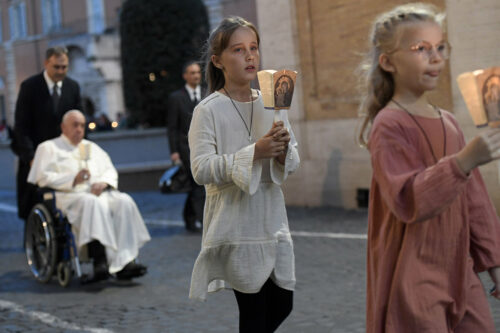
Led by children, Pope Francis arrived for an ecumenical prayer service with participants in the Synod of Bishops Oct. 11 in the Square of the Roman Protomartyrs at the Vatican.
“Just as we do not know beforehand what the outcome of the synod will be, neither do we know exactly what the unity to which we are called will be like,” he said. However, Christians know that unity will be a gift of the Holy Spirit, and it will not destroy all differences between them, but allow diversity to enrich everyone.
“We need to pursue the path of unity by virtue of our love for Christ and for all the people we are called to serve,” Pope Francis wrote. “As we travel along this path, let us never allow difficulties to stop us! Let us trust the Holy Spirit, who draws us to unity in the harmony of a multifaceted diversity.”
Synod begins looking at institutional changes
If members of the Synod of Bishops are serious about sharing their experience of “synodality” with all members of the Catholic Church, then they must identify concrete ways to do so, Cardinal Jean-Claude Hollerich told members.
“If we keep this treasure only for ourselves, we transform it into a privilege” rather than a service to the whole Church, Cardinal Hollerich, the synod relator general, told members Oct. 15 as they began discussing the third and final part of the synod’s working document.
Titled “places,” the section focused on promoting synodality — listening to each other more attentively and cooperating more readily — “from the perspective of the places that are the tangible contexts for our embodied relationships, marked by their variety, plurality and interconnection, and rooted in the foundation of the profession of faith, resisting human temptations to abstract universalism.”
Cardinal Hollerich said the challenge is to make sure members of the Church who are not present in the synod hall can experience synodality “not only through our recounting it, but through the renewal of our churches.”
“The aim of our work in the coming days,” he said, “is to propose instruments that make that easier.”
The 368 synod members were to discuss the “places” section of the working document through the morning of Oct. 18. The final week of the synod would be devoted to discussing, amending and approving a final document from the gathering. Voting on the final document was scheduled for the evening of Oct. 26, and the closing synod Mass was to be celebrated Oct. 27.
Halfway through the Synod of Bishops on Synodality, participants held a candlelight vigil to pray for Christian unity
Subscribe to Read All St. Louis Review Stories
All readers receive 5 stories to read free per month. After that, readers will need to be logged in.
If you are currently receive the St. Louis Review at your home or office, please send your name and address (and subscriber id if you know it) to subscriptions@stlouisreview.com to get your login information.
If you are not currently a subscriber to the St. Louis Review, please contact subscriptions@stlouisreview.com for information on how to subscribe.


